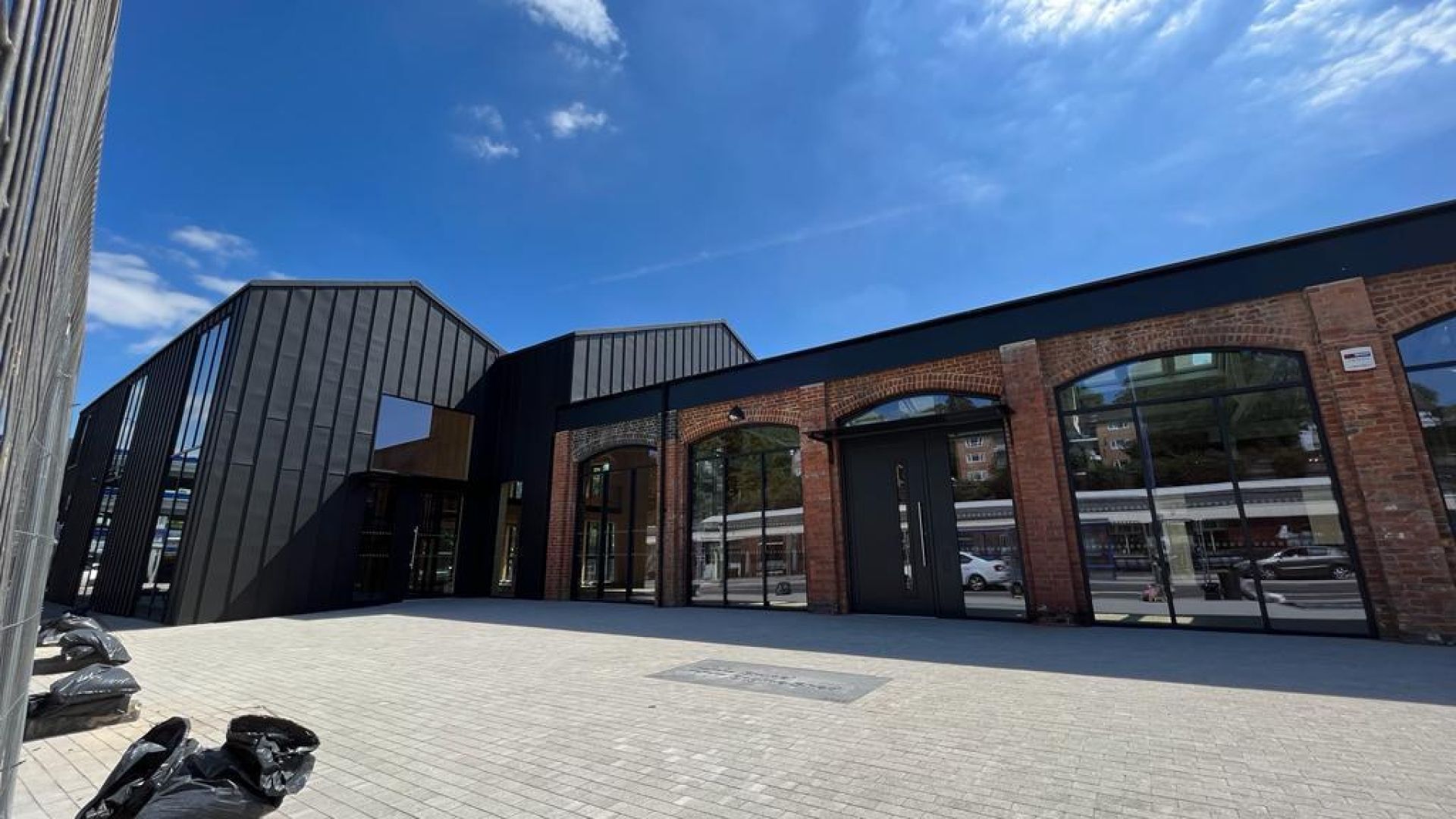
Full steam ahead for High Wycombe’s Brunel Engine Shed
BNU are delighted that Buckinghamshire Council has confirmed that BNU will be taking over High Wycombe’s Brunel Engine Shed.
The iconic Victorian Brunel Engine Shed outside the railway station in High Wycombe had been derelict and dilapidated for many years until the former Wycombe District Council stepped in and bought the historic Grade II* listed structure to breathe new life into the building and the surrounding area.
After carefully considering a range of uses for the restored building from prospective tenants, Buckinghamshire Council signed an agreement with Buckinghamshire New University.
Our exciting plans for the Brunel Engine Shed include using it as a café and gallery space which will be open to the public, as well as providing workspace for entrepreneurs and start-up businesses spinning out of the university.
The Brunel Engine Shed has been used for various purposes over the years. It was originally built by Isambard Kingdom Brunel for the Great Western Railway in 1854. It functioned as the town's train station until 1864 and subsequently had extensions and alterations for various railway uses until 1967. Parts of the building were demolished in 2009, and it sat derelict until the council purchased it to save it from further dilapidation.
Buckinghamshire Council set about an ambitious restoration and extension of the historic building, which has already transformed the area outside the station – a key gateway into the town.
Professor Nick Braisby, Vice-Chancellor of Buckinghamshire New University, said: "We are proud of the university’s contribution to High Wycombe from retraining ex-servicemen after the First World War in furniture-making and upholstery through to current times as we strive to make a difference in our local communities by tackling food and hygiene poverty, boosting literacy rates, and championing diversity.
"We are delighted to be working in partnership with the council to bring this wonderful building back to life and provide the local community with a new space to meet, showcase art and culture, and support businesses to promote economic growth. BNU will respect the building’s heritage in all that we do and ensure that the Brunel Engine Shed is a welcoming and fitting addition for the town and its visitors."
John Chilver, Cabinet Member for Accessible Housing and Resources, said: "The existing building has been sympathetically restored to reflect its historic past. The original Engine Shed has been fitted with a new slate roof in keeping with its original Victorian character and the original timber queen post trusses designed by Brunel have been sensitively repaired. Large areas of new glazing now flood the inside of the building with natural light making it an attractive and versatile contemporary space.
"With Buckinghamshire New University lined up to move in soon, it’s great to see that the Brunel Engine Shed is ready to start the next chapter in its fascinating history."
Rachael Matthews, Deputy Cabinet Member for Town Centre Regeneration, commented: "This vision and investment have brought this local landmark back to life, protecting the town’s history and helping to regenerate this part of High Wycombe. It supports our vision for High Wycombe town centre, where local businesses can thrive and flourish within a dynamic and supportive entrepreneurial community.
"The results are stunning, reflecting the best of our past and looking to the future. This iconic building is a key part of the town's heritage and part of the local community, so it's fitting that it will be a vibrant home for part of Buckinghamshire New University."
In addition to the restoration, a modern new extension has been added to the original Engine Shed. The zinc cladding on the extension mirrors the form of the existing building and has also added a mezzanine level, almost doubling the available floorspace on the site and adding to the versatility of how the space can be used.
Major improvements have also been made to the building's accessibility, including step-free access from the main entrance, accessible toilets and a new lift for the mezzanine level of the extension. The building has been designed to achieve high energy performance which BNU will deliver through their final fit out, which is expected to be completed in early 2024, once all necessary planning permission is in place.
Cover photo - Bucks Free Press